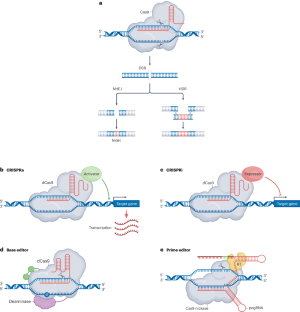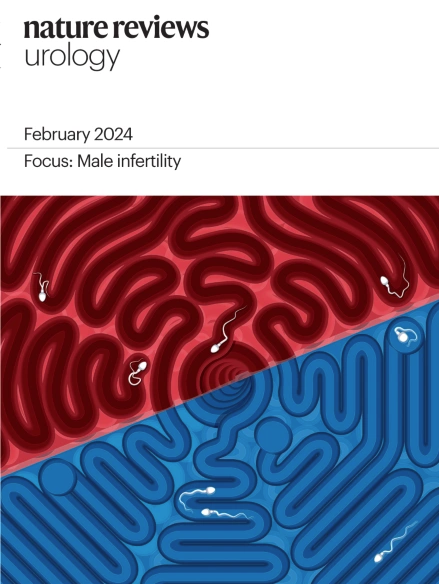CRISPR–Cas9 potential for identifying novel therapeutic targets in muscle-invasive bladder cancer
IF 12.1
1区 医学
Q1 UROLOGY & NEPHROLOGY
引用次数: 0
Abstract
Gene editing technologies help identify the genetic perturbations driving tumour initiation, growth, metastasis and resistance to therapeutics. This wealth of information highlights tumour complexity and is driving cancer research towards precision medicine approaches based on an individual’s tumour genetics. Bladder cancer is the 11th most common cancer in the UK, with high rates of relapse and low survival rates in patients with muscle-invasive bladder cancer (MIBC). MIBC is highly heterogeneous and encompasses multiple molecular subtypes, each with different responses to therapeutics. This evidence highlights the need to identify innovative therapeutic targets to address the challenges posed by this heterogeneity. CRISPR–Cas9 technologies have been used to advance our understanding of MIBC and determine novel drug targets through the identification of drug resistance mechanisms, targetable cell-cycle regulators, and novel tumour suppressor and oncogenes. However, the use of these technologies in the clinic remains a substantial challenge and will require careful consideration of dosage, safety and ethics. CRISPR–Cas9 offers considerable potential for revolutionizing bladder cancer therapies, but substantial research is required for validation before these technologies can be used in the clinical setting. In this Perspective, the authors provide an overview of current research using CRISPR–Cas gene editing technologies to understand biological mechanisms and identify novel therapeutic targets in muscle-invasive bladder cancer. Future perspectives about the use of CRISPR-based therapeutics in the clinic, as well as current limitations and ethical considerations, are also discussed.


CRISPR-Cas9 在确定肌肉浸润性膀胱癌新治疗靶点方面的潜力。
基因编辑技术有助于确定驱动肿瘤发生、生长、转移和抗药性的基因扰动。这些丰富的信息凸显了肿瘤的复杂性,并推动着癌症研究向基于个体肿瘤遗传学的精准医疗方法发展。膀胱癌是英国第 11 位最常见的癌症,肌层浸润性膀胱癌(MIBC)患者复发率高、存活率低。肌层浸润性膀胱癌具有高度异质性,包括多种分子亚型,每种亚型对疗法的反应各不相同。这些证据凸显了确定创新治疗靶点的必要性,以应对这种异质性带来的挑战。CRISPR-Cas9技术已被用于推进我们对MIBC的了解,并通过鉴定耐药机制、可靶向的细胞周期调节因子以及新型抑癌基因和致癌基因来确定新型药物靶点。然而,在临床中使用这些技术仍是一项巨大的挑战,需要仔细考虑用量、安全性和伦理问题。CRISPR-Cas9为膀胱癌疗法的变革提供了巨大的潜力,但在这些技术应用于临床之前,还需要大量的研究来验证。
本文章由计算机程序翻译,如有差异,请以英文原文为准。
求助全文
约1分钟内获得全文
求助全文
来源期刊

Nature Reviews Urology
医学-泌尿学与肾脏学
CiteScore
12.50
自引率
2.60%
发文量
123
审稿时长
6-12 weeks
期刊介绍:
Nature Reviews Urology is part of the Nature Reviews portfolio of journals.Nature Reviews' basic, translational and clinical content is written by internationally renowned basic and clinical academics and researchers. This journal targeted readers in the biological and medical sciences, from the postgraduate level upwards, aiming to be accessible to professionals in any biological or medical discipline.
The journal features authoritative In-depth Reviews providing up-to-date information on topics within a field's history and development. Perspectives, News & Views articles, and the Research Highlights section offer topical discussions and opinions, filtering primary research from various medical journals.
Covering a wide range of subjects, including andrology, urologic oncology, and imaging, Nature Reviews provides valuable insights for practitioners, researchers, and academics within urology and related fields.
 求助内容:
求助内容: 应助结果提醒方式:
应助结果提醒方式:


